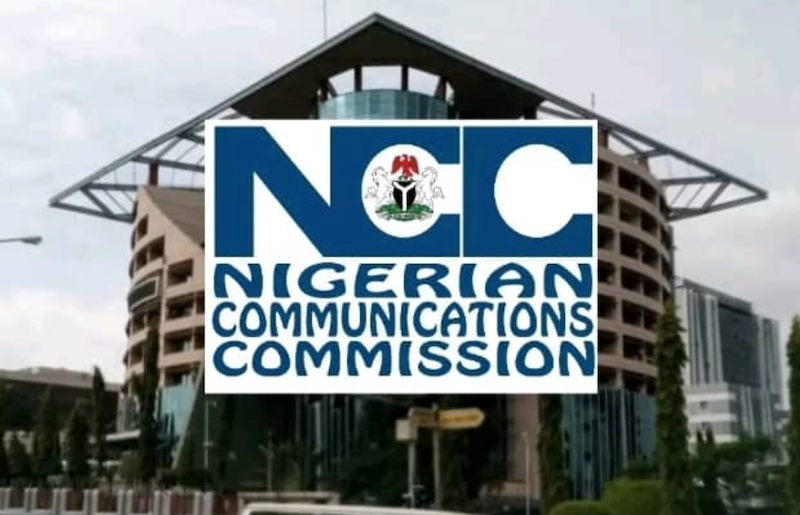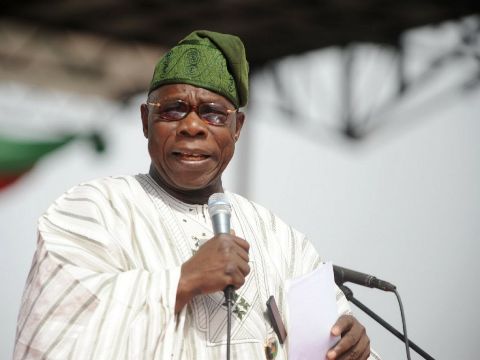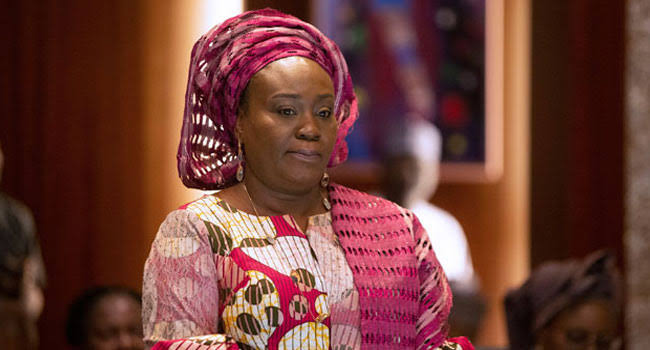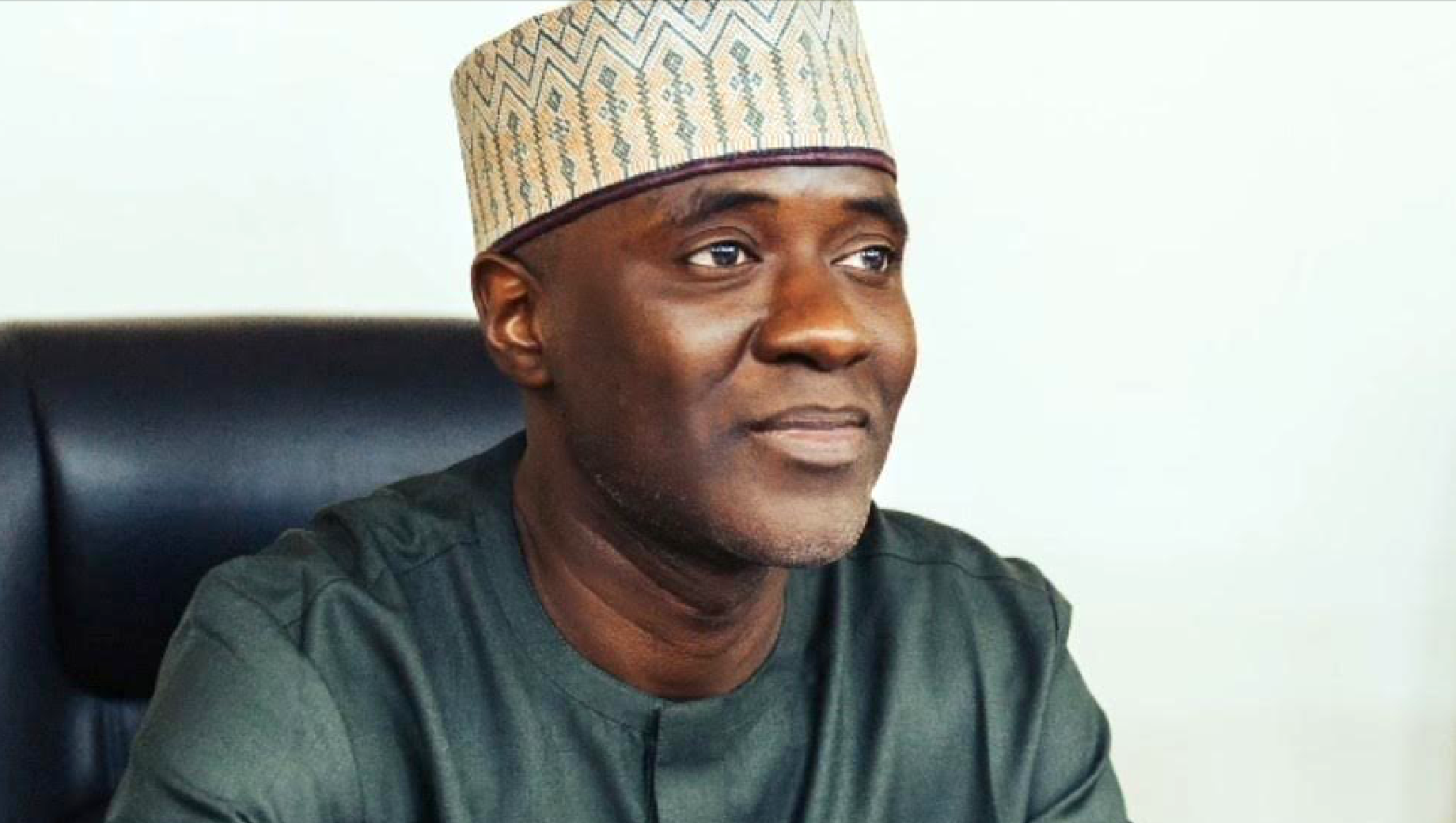Former President Olusegun Obasanjo has said the success recorded in the telecommunications sector of the Nigerian economy did not come by luck but as a result of creating a conducive environment for investments to thrive.
TheNewsGuru.com (TNG) reports Obasanjo, who said this at the exaugural lecture and book launch by a former Editor of Punch, Mr Adedayo Oketola in Lagos on Tuesday, called for a more conducive environment in the country to attract large foreign investments.
Speaking during the launch of the book titled: “The Catalyst: Nigerian ICT Evolution Through A Journalist’s Lens”, the former president stressed that with the right mindset and policies, any country would attract growth and investments. He said that his administration thrived on the investments from the telecommunications sector.
Obasanjo recalled the early days when Nigeria’s telecommunications industry was in its infancy when millions of dollars were spent on infrastructure but only managed to achieve 500,000 lines.
“People had to queue at telephone kiosks to make calls. It was a far cry from the seamless communication we enjoy today but then came the mobile telephone revolution. I recall how my officials had tried to give away a mobile line for three million dollars, only for me to auction it off for a whopping 280 million dollars.
“The competition that followed was fierce, with three major players emerging MTN, Glo and Econet. The latter caused a stir among the others but eventually, they sorted out their differences and became Airtel. Years later, we welcomed a fourth player, Etisalat, which paid a staggering $450million for a licence.
According to him, the industry was booming and government was raking in the revenue but the success was not just due to luck; it was the result of creating a conducive environment for investments.
The former president said that the opportunity could still be made available. Obasanjo said that the money to develop Nigeria was out there but that money would not come in unless a conducive atmosphere is created for that money to come in.
Also speaking at the occasion, the Lagos State Government highlighted achievements made in the Information Communications Technology sector. The Lagos State Commissioner for Information and Strategy, Mr Gbenga Omotoso, said that the state had achieved 99 per cent laying of fibre optic cables for improved Internet connectivity.
Omotoso said that there was a huge connection between the industry and Lagos State. He said that technology had taken a very huge space in the affairs of humanity, saying that in hubs across the state, young people were using technology to solve everyday affairs.
The Executive Vice Chairman, Nigerian Communications Commission (NCC), Dr Aminu Maida, said that one of the major challenges of the telecommunications sector was vandalisation of telecom infrastructure. Maida who was represented by Head, Corporate Communication, NCC, Mrs. Nnena Ukoha, said that such vandalisation affected everyone.
According to him, it affects me and you when you are in a place and you see people vandalising ICT infrastructure, please speak out. He said vandalisation of ICT infrastructure was a huge, huge problem in the industry, saying they stole their diesel, vandalised their base stations, amongst others.
“So we ask that if you are in such places, please kindly help NCC educate people on the importance of protecting ICT infrastructure,’’ he said.
Maida also said that the Commission was undertaking a holistic review of the licensing regime to be in tune with the international and global standards.
Also speaking at the occasion the President of Association of Licensed Telecommunication Operators of Nigeria (ALTON), Mr Gbenga Adebayo, mentioned three very critical points for the industry to thrive.
Adebayo said national identity system was the bedrock of digital economy, urging all to embrace the NIN-SIM linkage. He also commented on the economic challenges and areas that affected the industry, highlighting the protection of its equity.
According to him, the industry has invested over the last 20 years in building this infrastructure and it has now become very vulnerable.
“People, including scavengers go on public highways to remove manhole covers. But the good thing is that there has now been a law signed by the President which penalises the vandalisation of the infrastructure,” Adebayo said.
The Chairman of the occasion, Mr Michael Ikpoki, highlighted the qualities of Oketola as an astute reporter and editor.
The President, Association of Telecommunication Companies of Nigeria (ATCON), Mr Tony Emokpere, said that one of the things demonstrated by the book was local content.
Emokpere said that there was need for more local players; with this book to be the driving force for local content in our industry.
The Book Reviewer, Dr Akin Olaniyan, said that the book highlighted how technological innovation in telecoms, fintech and infrastructure had contributed to Nigeria’s national development.
Olaniyan said the book also embodied the importance of strategic planning and governance in the successful execution of these projects.
He said the theme, amongst others, addressed the marginalisation of certain groups, particularly persons with disabilities and women in Nigeria’s tech revolution.
According to him, the chapters explored how inclusivity was integrated into the technological advancement to ensure equitable access and opportunities.
In his Exaugural Lecture, titled ”Print Journalism in Peril: Challenging Times for Newspapers Editors’’, Oketola said the lecture marked the end of his career in Punch and not as a journalist.
Oketola said that revenue remained a critical challenge in the print, saying that misinformation and fake news had bedeviled the print media especially with the advent of social media.
He, however, said that the print media still had the integrity and credibility of correcting misinformation by the social media through investigation and fact-checking.
He suggested a review of outdated business models by the print media.
In a goodwill message, the Founder, Love of Christ Generation Church (C&S), Rev. Mother Esther Ajayi, urged Nigerians to pray and be very hopeful of a buoyant economy.








